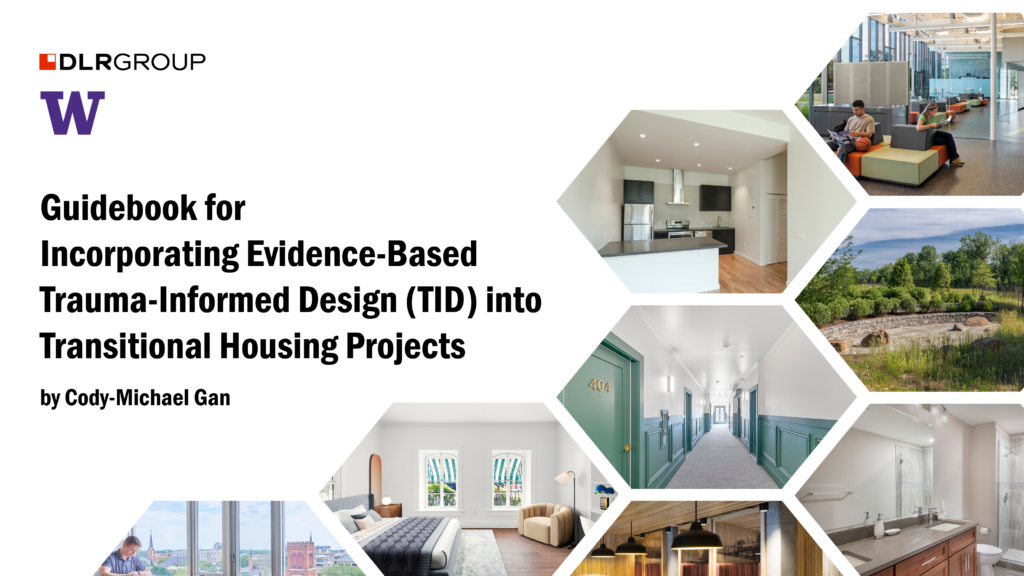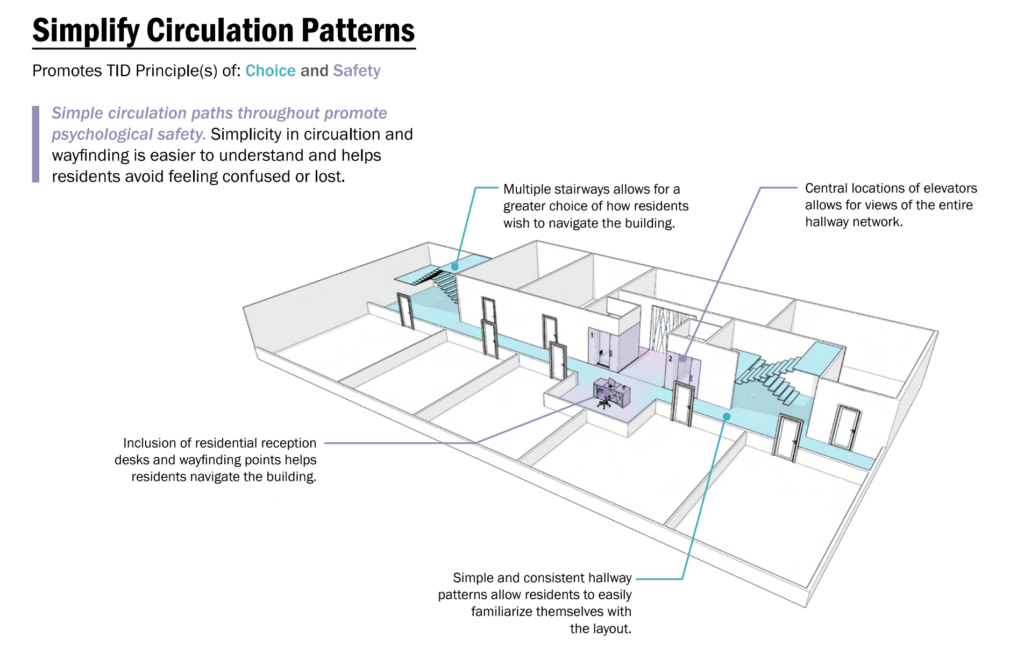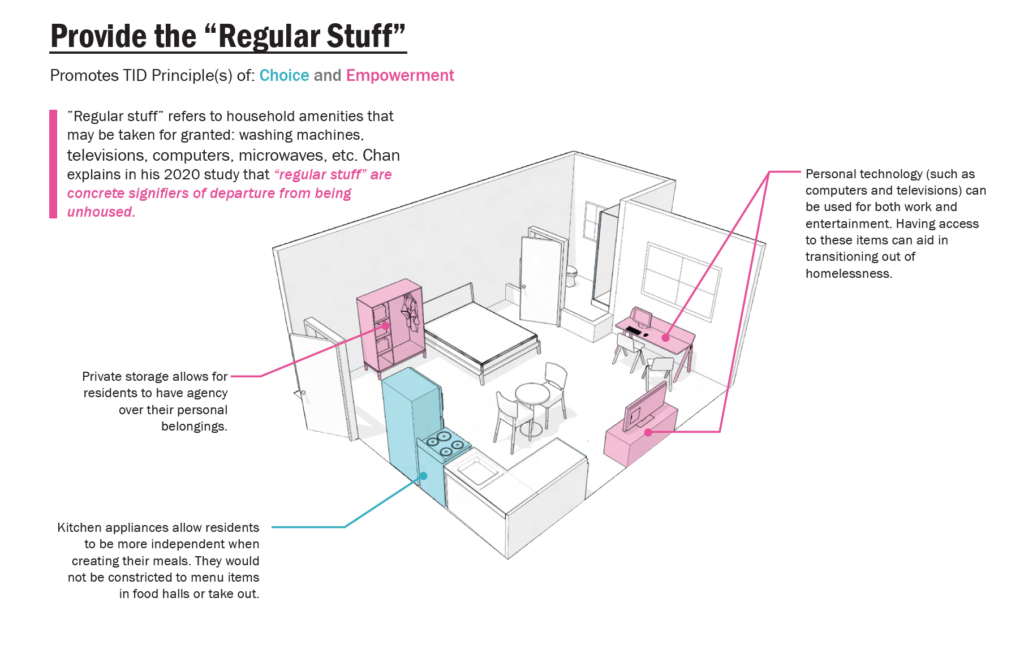July 31, 2023
Incorporation of Evidence-Based Trauma-Informed Design in Transitional Housing Projects
ARC Fellow: Cody-Michael Ordona Gan
Degree Program: Master of Urban Design and Planning
Faculty Advisors: Catherine De Almeida, Landscape Architecture
Firm: DLR Group
Firm Advisors: B Sanborn
Project dates: Autumn 2022 – Spring 2023
Read the Project Report
View Presentation Slides
Watch the Final Presentation
More about the project:
Trauma-Informed Design (TID) is an increasingly prominent design framework that aims to prevent causing stress to individuals that have experienced life-altering events, or are currently enduring the effects of a traumatic event in spaces that make up the built environment. TID is driven by the five principles of Trauma-Informed Care: safety, choice, collaboration, trust, and empowerment. However, there are no standardized guidelines for incorporating TID into program components in modern urban development. Transitional housing is a temporary housing typology that aids formerly
unhoused individuals transition out of houselessness. Studies show that unhoused individuals are often exposed to traumatic stressors; due to this, a TID approach to creating transitional housing could be beneficial. This project investigates how TID fits into the program components of transitional housing through a literature review, case study reviews, and interviews with designers that have completed projects with a TID framework. These methods were applied to the development of a TID guidebook for designers to intentionally integrate TID into transitional housing projects.

Title page of final guidebook. CODY-MICHAEL GAN; DLR GROUP

Example page of guidebook. (Recommendation gleaned from interview portion of this study.) CODY-MICHAEL GAN; DLR GROUP

Example page of guidebook. CODY-MICHAEL GAN; DLR GROUP
Chan, Dara V. 2020. “Safe Spaces, Agency, and Connections to ‘Regular Stuff’: What Makes Permanent Supportive Housing Feel Like ‘Home.’” Rehabilitation Counseling Bulletin 63 (2): 102 14. https://doi.org/10.1177/0034355218814927.)
